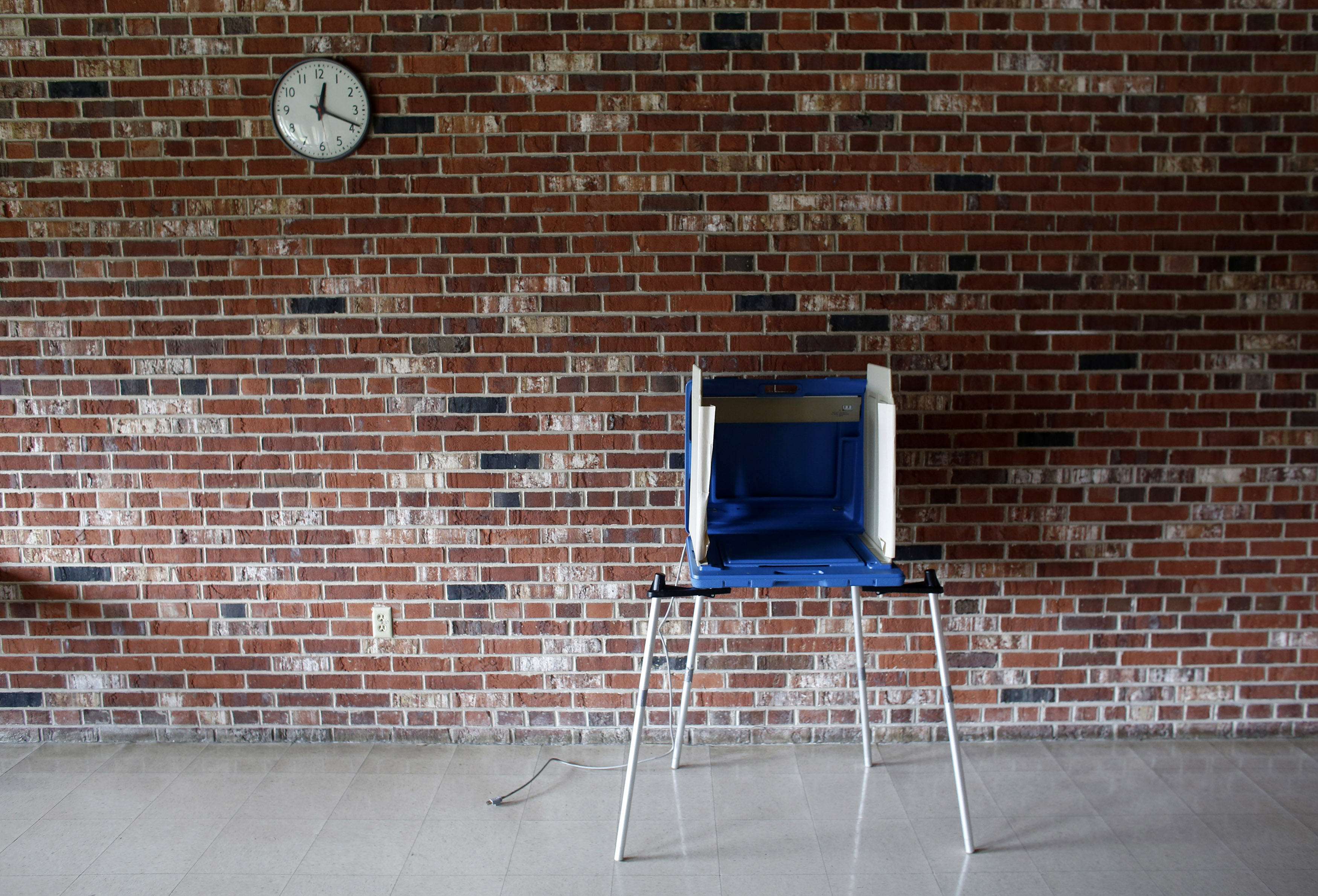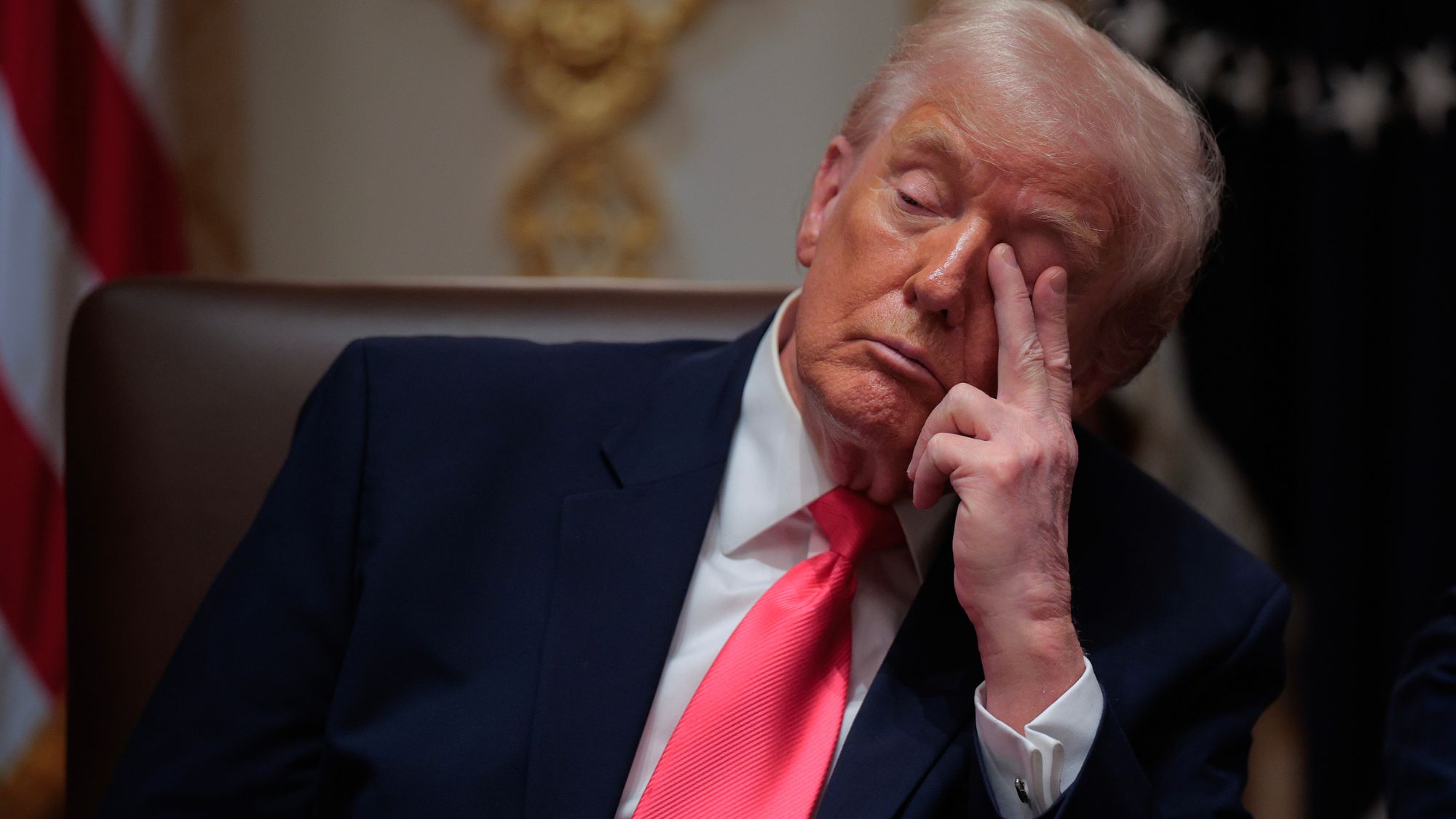This is the first election without the full Voting Rights Act — and it's already a disaster
Is it any wonder that black voter turnout in many states is down sharply?


In 2013, when Supreme Court Chief Justice John Roberts wrote his opinion gutting the Voting Rights Act in Shelby County v. Holder, a key part of his argument was that it wasn't necessary anymore. "The country has changed," he said.
It turns out this argument is somewhat akin to that of vaccine denialists who scoff at the danger of polio, since it hasn't been seen in the United States for many years. Obviously, until the disease is fully eradicated from the entire planet, mass vaccination is all that prevents one unlucky plane flight from creating a roaring polio epidemic.
And what do you know, Roberts' removal of the anti-racism shackles has created a roaring outbreak of racism. In states across the country, Republicans are attempting to disenfranchise as many Democratic-leaning constituencies as possible — especially black Americans. This will be the first presidential election without the full protections of the Voting Rights Act, and the GOP has demonstrated beyond a shadow of the doubt that the act is barely less necessary now than it was in 1965.
The Week
Escape your echo chamber. Get the facts behind the news, plus analysis from multiple perspectives.

Sign up for The Week's Free Newsletters
From our morning news briefing to a weekly Good News Newsletter, get the best of The Week delivered directly to your inbox.
From our morning news briefing to a weekly Good News Newsletter, get the best of The Week delivered directly to your inbox.
As Scott Lemieux points out, when Roberts wrote his decision he had already been working to destroy the Voting Rights Act for a quarter-century. The way to understand this is as a sustained effort by conservatives to fool the country and themselves into thinking that state-level Republican officials wouldn't snatch the first chance they got to suppress Democratic-leaning voters.
This effort has had two prongs. First, a constant reference to imaginary in-person voter fraud. The fact that this is all but nonexistent and indeed doesn't even make sense as a strategy — as Lyndon Johnson could tell you, an election is stolen by controlling the count, not by getting thousands or millions of people to individually commit serious felonies — is ignored, because it's a pretext. Second, conservatives crossed their hearts and hoped to die that racist disenfranchisement was a part of the misty past, not something that needs protection against anymore.
Now, Roberts' legal reasoning was so ludicrous that he did not even cite part of the Constitution to justify it, and flat ignored the clear authorization for racial suffrage protections in the 15th Amendment. Indeed, the only clear precedent for his decision was Dred Scott v. Stanford (which he did not mention, for obvious reasons).
Unfortunately, that sort of thing is an inescapable part of our legal system. If you get enough partisan hacks installed in the highest court, where what they say is the very definition of what the Constitution means, then there's no stopping them.
A free daily email with the biggest news stories of the day – and the best features from TheWeek.com
However, semi-plausible deniability was key to the GOP's strategy. And now, the partisan and racial subtext behind the new vote suppression efforts in 14 states are so obvious that Republicans are barely even bothering to deny it. Multiple instances of smoking gun evidence have been found, in the form of Republican officials making overt efforts to deny the vote to Democratic constituencies. In Wisconsin, a clerk argued against an early voting station at a local university because "students lean more towards the Democrats." Emails uncovered by Reuters reveal Republicans in North Carolina lobbying hard to cut hours at times when Democrats vote at early voting stations.
Worst of all, communications revealed during legal proceedings revealed North Carolina Republican lawmakers carefully compiling and considering statistics about which locations had large populations of Democrats and blacks, before passing a raft of voting restrictions which are harder for blacks to clear. That prompted a federal judge to conclude they had targeted African-Americans "with almost surgical precision." (And since Antonin Scalia is dead, the Supreme Court won't rubber stamp such nonsense anymore.)
Overall, Roberts' decision means more than 860 fewer polling stations in places with a history of disenfranchisement. State governments in Wisconsin, Texas, Ohio, and North Carolina are ignoring federal court orders to provide proper voting facilities.
These efforts are paying dividends. Black early voting is off sharply in several states compared to 2012 — undoubtedly in large part the result of vote suppression. Some of that might be chalked up to Barack Obama no longer heading the ticket, but it beggars belief to think that explains all of it. In North Carolina, where such restrictions are worst, black turnout is down 16 percent.
Right now these efforts are mainly centered around making voting more of a pain in the neck for the poorer and browner people who tend to vote Democratic (as illustrated in a darkly hilarious video game produced by The New York Times). But I have little doubt at this point they would re-institute fully systematic disenfranchisement if they got the chance. Best to exercise that franchise now, while you still can.
Ryan Cooper is a national correspondent at TheWeek.com. His work has appeared in the Washington Monthly, The New Republic, and the Washington Post.
-
 Trump’s poll collapse: can he stop the slide?
Trump’s poll collapse: can he stop the slide?Talking Point President who promised to ease cost-of-living has found that US economic woes can’t be solved ‘via executive fiat’
-
 Sudoku hard: December 7, 2025
Sudoku hard: December 7, 2025The daily hard sudoku puzzle from The Week
-
 Codeword: December 7, 2025
Codeword: December 7, 2025The daily codeword puzzle from The Week
-
 Has Zohran Mamdani shown the Democrats how to win again?
Has Zohran Mamdani shown the Democrats how to win again?Today’s Big Question New York City mayoral election touted as victory for left-wing populists but moderate centrist wins elsewhere present more complex path for Democratic Party
-
 Millions turn out for anti-Trump ‘No Kings’ rallies
Millions turn out for anti-Trump ‘No Kings’ ralliesSpeed Read An estimated 7 million people participated, 2 million more than at the first ‘No Kings’ protest in June
-
 Ghislaine Maxwell: angling for a Trump pardon
Ghislaine Maxwell: angling for a Trump pardonTalking Point Convicted sex trafficker's testimony could shed new light on president's links to Jeffrey Epstein
-
 The last words and final moments of 40 presidents
The last words and final moments of 40 presidentsThe Explainer Some are eloquent quotes worthy of the holders of the highest office in the nation, and others... aren't
-
 The JFK files: the truth at last?
The JFK files: the truth at last?In The Spotlight More than 64,000 previously classified documents relating the 1963 assassination of John F. Kennedy have been released by the Trump administration
-
 'Seriously, not literally': how should the world take Donald Trump?
'Seriously, not literally': how should the world take Donald Trump?Today's big question White House rhetoric and reality look likely to become increasingly blurred
-
 Will Trump's 'madman' strategy pay off?
Will Trump's 'madman' strategy pay off?Today's Big Question Incoming US president likes to seem unpredictable but, this time round, world leaders could be wise to his playbook
-
 Democrats vs. Republicans: who are US billionaires backing?
Democrats vs. Republicans: who are US billionaires backing?The Explainer Younger tech titans join 'boys' club throwing money and support' behind President Trump, while older plutocrats quietly rebuke new administration
